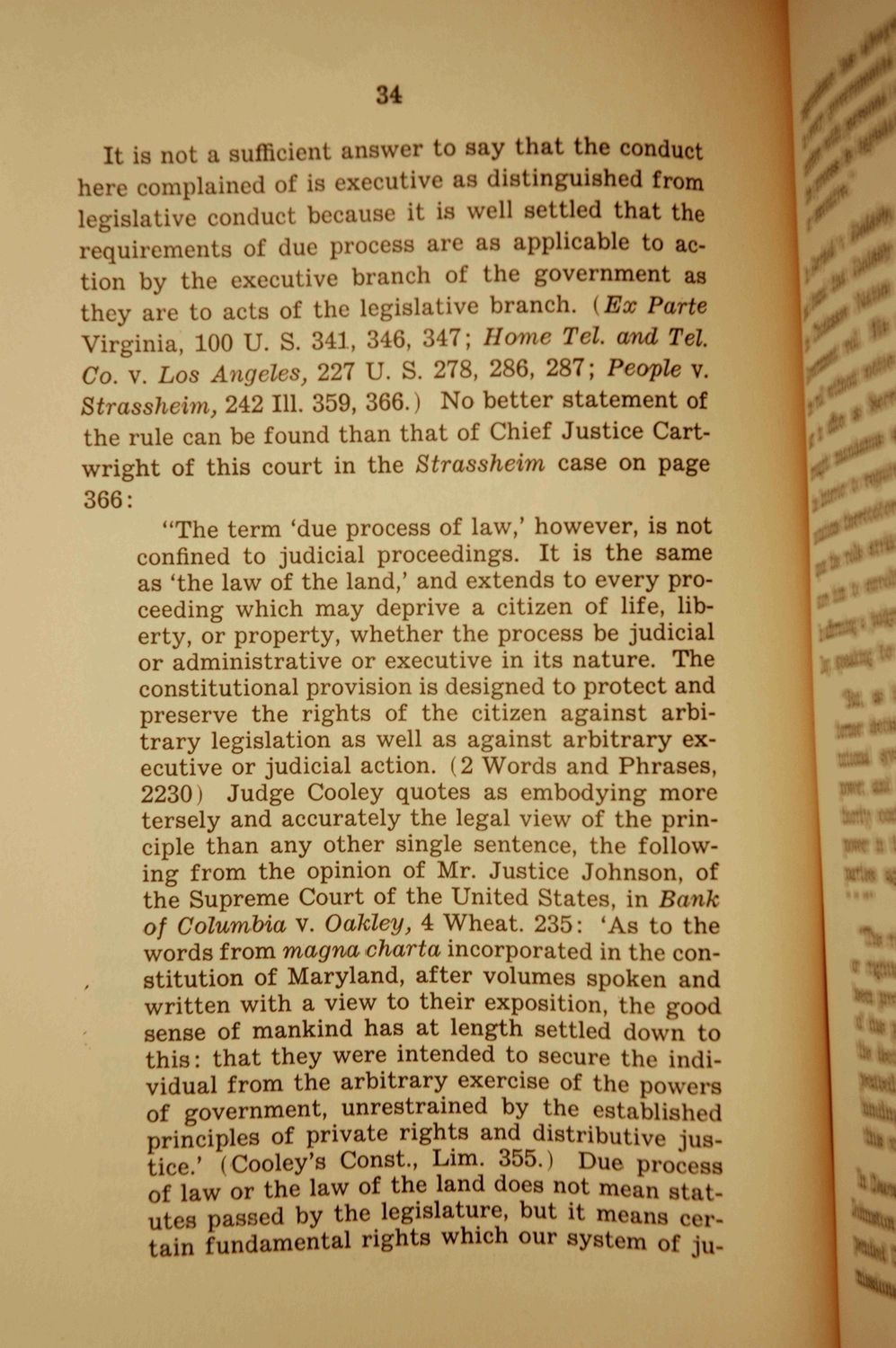| |
| |
Caption: Booklet - UI Charter of Freedom (1942)
This is a reduced-resolution page image for fast online browsing.

EXTRACTED TEXT FROM PAGE:
34 It is not a sufficient answer to say that, the conduct hen complained of is executive as distinguished from legislative conduct because it is well settled that the requirements of due process ai as applicabl to action by the executive branch of the government as they are to acts of the legislative branch, i Ex Parte Virginia, 100 U. S. 341, 346, 347; Home Tel. and Tel. Co. v. Los Angeles, 227 U. S. 278, 286, 287; People v. Strassheim, 242 111. 359, 366.) No better statement of the rule can be found than that of Chief Justice Cartwright of this court in the Strassheim case on page 366 "The term 'due process of law,' however, is not confined to judicial proceedings. It is the same as 'the law of the land,' and extends to every proceeding which may deprive a citizen of life, liberty, or property, whether the process be judicial or administrative or executive in its nature. The constitutional provision is designed to protect and preserve the rights of the citizen against arbitrary legislation as well as against arbitrary executive or judicial action. (2 Words and Phrases 2230) Judge Cooley quotes as embodying more tersely and accurately the legal view of the principle than any other single sentence, the following from the opinion of Mr. Justice Johnson, of the Supreme Court of the United States, in Bank of Columbia v. Oakley, 4 Wheat. 235: 'As to the from Maryland written with a view to their exposition, the good sense of mankind has at length settled down to this: that they were intended to secure the individual from the arbitrary exercise of the powers of government, unrestrained by the established principles of private rights and distributive justice.' (Cooley's Const., Lim. 355.) Due process of law or the law of the land does not mean statutes passed by the legislature, but it moans certain fundamental rights which our system of j u -
| |